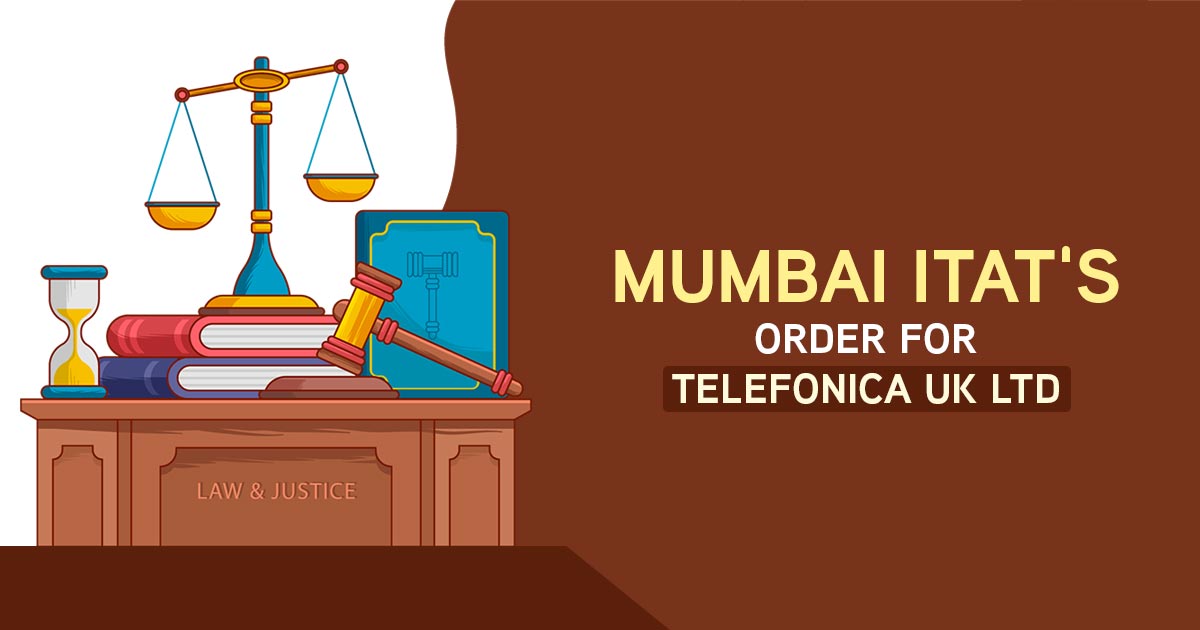
The Income Tax Appellate Tribunal (ITAT) in Mumbai has ruled that revenue earned by a British telecom company from an Indian telecom company for providing roaming services to international customers does not qualify as ‘royalty.’
Amit Shukla (Judicial Member) and Gagan Goyal (Accountant Member) of the bench noted that payments to a non-resident company for delivering standard bandwidth services cannot be classified as ‘royalty’ under the Double Taxation Avoidance Agreement (DTAA).
Consequently, the income received by the taxpayer from Vodafone Idea Limited (VIL) in the form of roaming charges is exempt from taxation.
The appellant/assessee, Telefonica UK Ltd., is a corporation established under the jurisdiction of the United Kingdom of Great Britain and Northern Ireland (UK) and maintains tax residency in the UK.
Telefonica UK Ltd. “operates as a non-resident telecommunications service provider, specializing in the provision of mobile and broadband services, as well as a range of supplementary services, including text messaging, multimedia messaging, video, and data connections within the United Kingdom”.
According to the terms of the VIL agreement the taxpayer, is needed to supply telecommunication services before the VIL’s consumers, and in order to do so, the taxpayer must get VIL’s acknowledgement.
Hence the agreement inserted into the taxpayer with VIL is the service agreement beneath which the telecommunication services are furnished via the taxpayer to the VIL customers.
Read Also:- Mumbai ITAT: Fee Paid to Tata & Sons Ltd. for its Brand is Not Considered Capital, No Royalty
The taxpayer’s network is concerned with the processes or equipment utilised via the taxpayer for furnishing the services of telecommunication. The VIL does not have access to the network of the taxpayers or the pertinent processes or equipment that the assessee utilised to furnish the services.
In cooperation with the VIL, the taxpayer offered roaming services and collected Rs 7,45,72,448 in return. Because they claimed the roaming services were provided outside of India, namely in the United Kingdom, the assessee did not include the amount in their taxable income.
Consequently, they believed that the income did not originate or arise within the jurisdiction of India. The income obtained via the assessee was deemed exempt from taxation as either royalty or fees for technical services (FTS) under the provisions of the relevant tax laws and the India-UK Double Taxation Avoidance Agreement (DTAA).
However, the tax department initiated reassessment proceedings, asserting that the amount received by the assessees for providing roaming services should be categorized as ‘process’ according to the Explanation to Section 9(1)(vi), thereby qualifying it as royalty.
The tribunal, on the other hand, pointed out that VIL (Vodafone Idea Limited) was not granted any rights as defined in Explanation 2 to Section 9(1)(vi), and there was no evidence to suggest that VIL had the privilege to use or had used the process or equipment owned by the assessee. It was evident that the assessees was utilizing its own process, equipment, and network to deliver roaming services to VIL’s customers in the UK.
| Case Title | Telefonica UK Ltd V/S Deputy Commissioner of Income Tax |
| Citation | ITA No.771/Mum/2023 & 772/Mum/2023 (Assessment Year: 2014-15) |
| Date | 22.09.2023 |
| Assessee by | Shri Hiten Chande |
| Revenue by | Shri S Anbuselvam |
| Calcutta High Court | Read Order |









